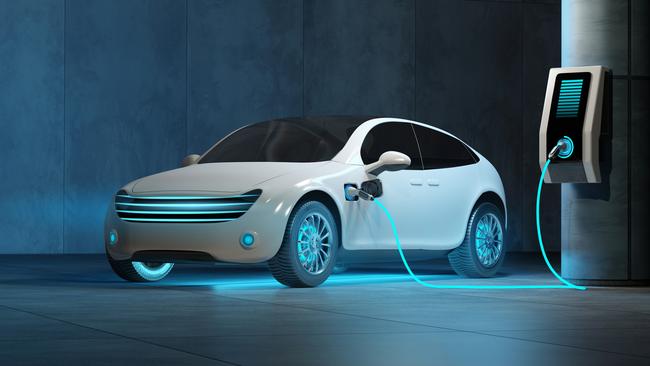Motoring groups ask Albanese government to change new vehicle efficiency standard
Peak motoring bodies want rewards built into the government’s fuel efficiency standard to make the plan more realistic for car manufacturers.

The motoring industry is urging Labor to add rewards for good behaviour into its fuel efficiency standard, which stakeholders say would be the toughest in the world in its current form, as the government stands firm on its preferred model.
With submissions on Labor’s proposed design due on Monday, stakeholders are pushing for off-road four-wheel drives like the LandCruiser Prado to be categorised alongside utes, which face less stringent targets, rather than passenger vehicles and say there must be “carrots” for car manufacturers.
Toyota’s sales and marketing chief Sean Hanley said the government’s transition was too quick, the targets too steep – especially for large four-wheel drive SUVs and light commercial vehicles – and any fines for failing to meet targets would be passed on to the customer.
Under the government’s standard, which would reduce the carbon intensity of newly sold cars by 60 per cent by the end of the decade, manufacturers would use a credit-trading system where suppliers who beat the targets would be able to sell credits to those that fall short.
Carmakers will be fined about $100 a gram of carbon by which their fleet exceeds the threshold.
Motor Trades Association of Australia chief executive Matt Hobbs said manufacturers could either buy more electric vehicles, sell fewer big emitting cars, buy credits from another company or pay the fine.
“This is the toughest standard in the world; it’s all stick and no carrot – even New Zealand put money on the hood on the car to help sell EVs,” he said.
The motoring industry is asking the government to consider off-cycle credits for more efficient airconditioning and car lights, as well as “super credits” in which a sale of an electric vehicle could count towards two internal combustion engine vehicles.
“While the government’s proposal seeks to catch up with the US, it does so without the benefit of time, incentives, and flexibility mechanisms which are all key features of the US approach to reducing vehicle emissions,” Australian Automotive Dealer Association chief executive James Voortman said.
Federal Chamber of Automotive Industries chief executive Tony Weber said subsidies for manufacturers and customers to sell and purchase EVs needed to be on the table. “If the government really wants to go hard as they’ve indicated in their impact analysis, they could learn about what has happened from around the world and they need to provide subsidies,” he said.
Infrastructure and Transport Minister Catherine King would not confirm whether the government was considering industry concessions.
“New vehicle efficiency standards operate in 85 per cent of the global car market and the NVES impact analysis found ‘evidence to date consistently finds no purchase price impact, or a negligible purchase price impact, for consumers’,” Ms King said.
Electric Vehicle Council chief executive Behyad Jafari said the government had the balance right on its standard and, while there may be room for some “reasonable adjustments”, they shouldn’t weaken its overall intent.




To join the conversation, please log in. Don't have an account? Register
Join the conversation, you are commenting as Logout